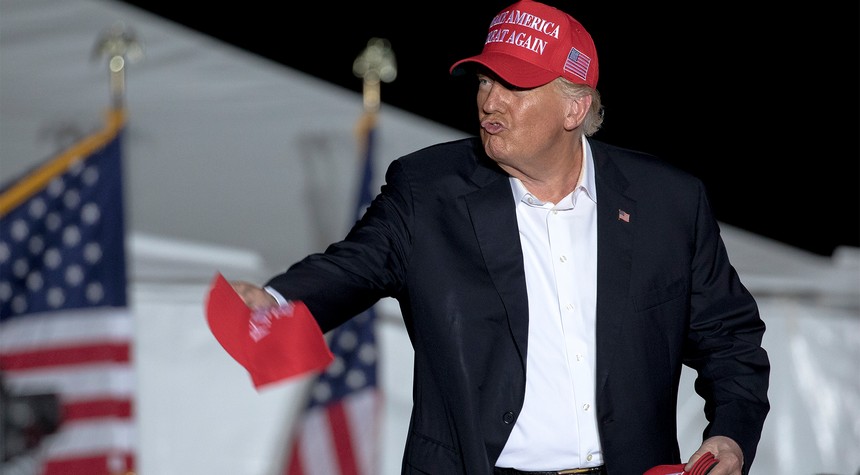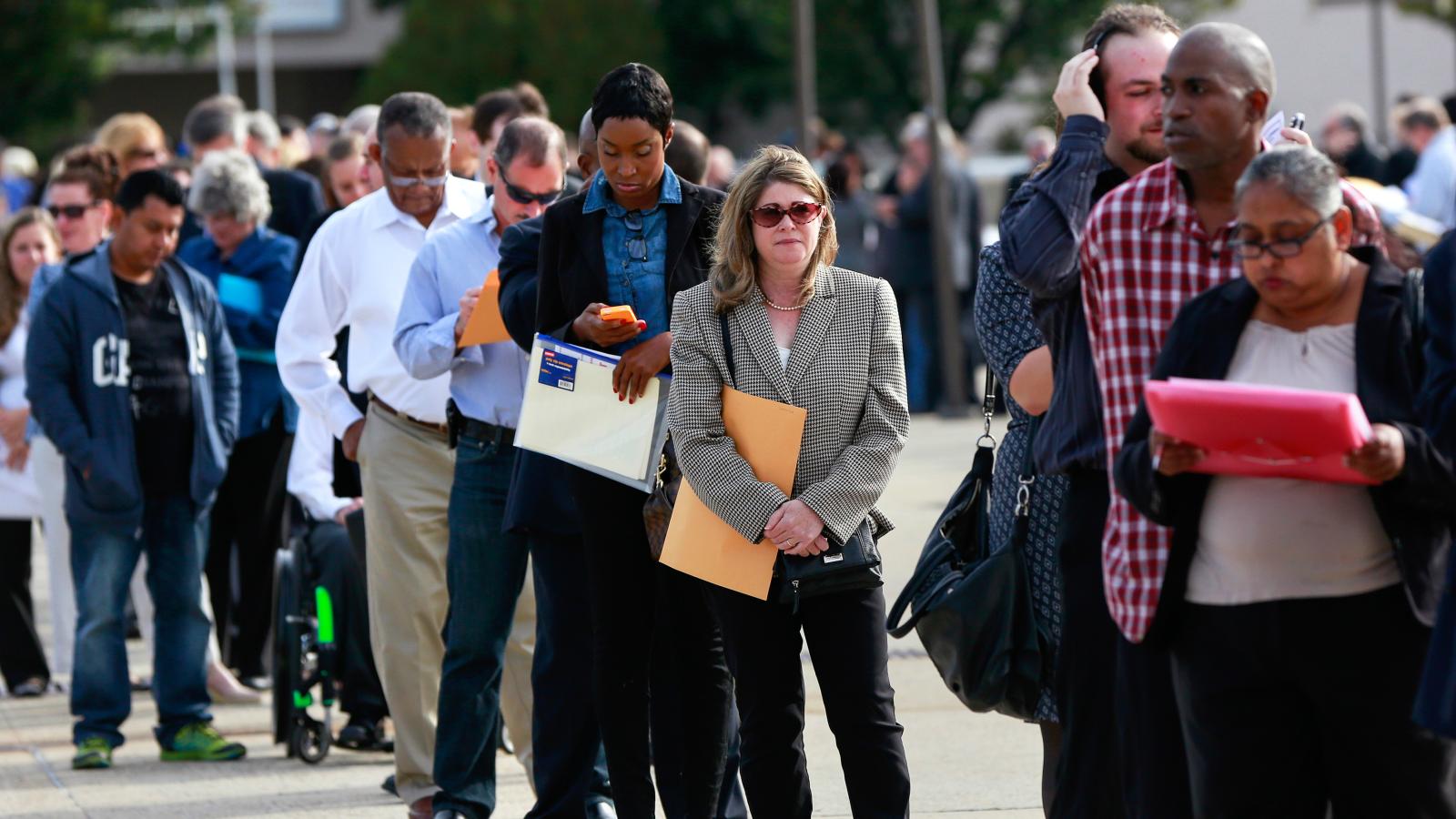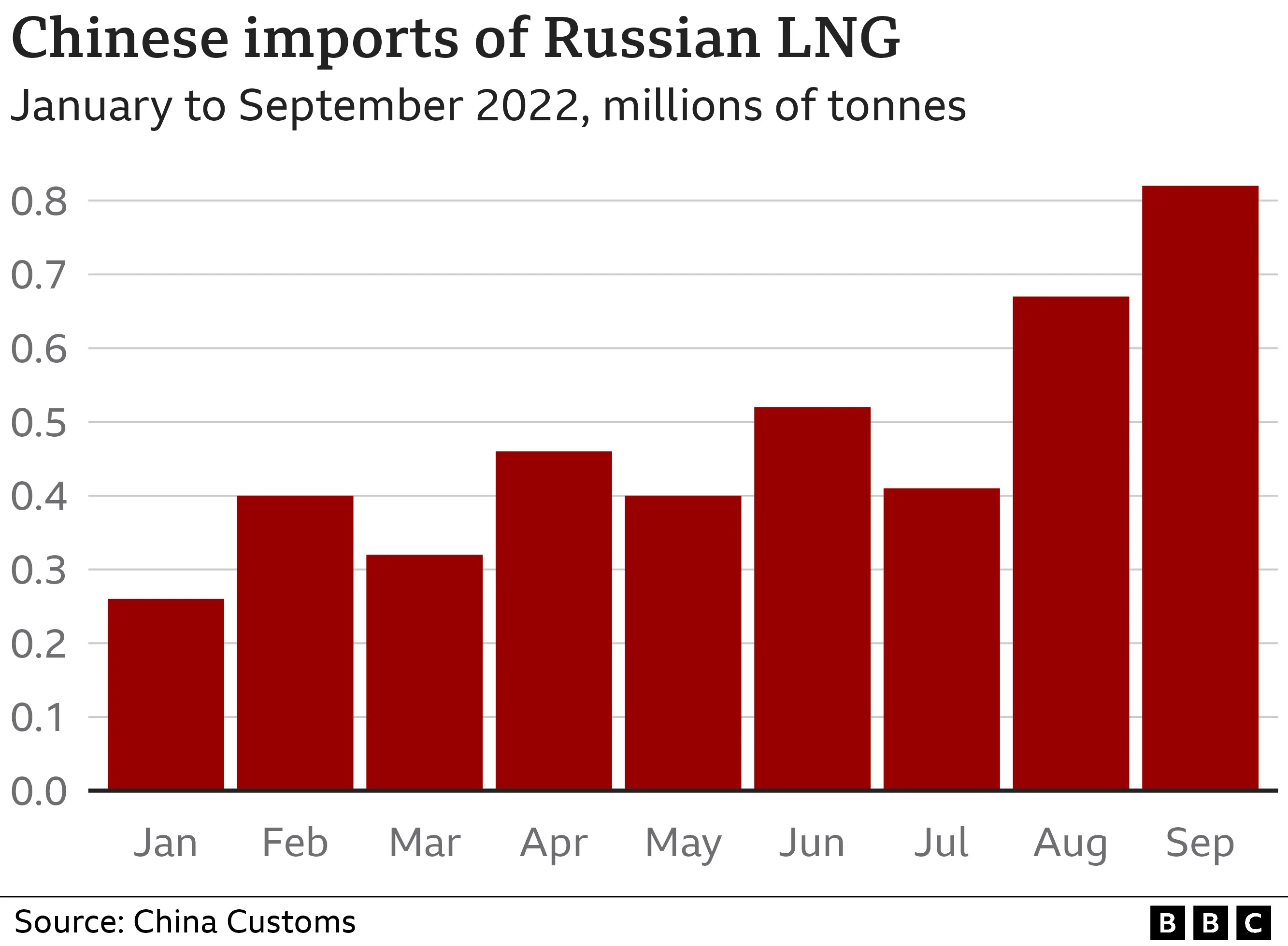Earth to Republicans: Flipping one house of Congress is not a defeat, no matter how much the legacy media and the complicit Murdoch press (they of the curiously early calls for Biden on Election Day 2020) try to tell you. Not all of the numbers are in—courtesy of multiple state voting systems that remain suspiciously flawed two years after the 2020 debacle and 22 years after the six-week Bush v. Gore psychodrama—but we already know enough to refute the absurd suggestion that what happened on Tuesday was a Republican rout that should be blamed on former president Donald Trump, who—as GOP opponents argue and Democrats hope—will now be exorcized from national politics.
Let’s start with the House. Counting declared victories and races in which Republican candidates led by at least a point in the ballot counting as of Monday, it appears the GOP will eke out a majority of two seats. Obviously, this is smaller than the 20-30 seat majority pollsters predicted in recent weeks, but if the Democrats have taught us nothing else, a bare majority is still a majority.
Whether that majority materializes or not, the new House GOP caucus will be the most conservative, and the most pro-Trump, ever elected. About 140 of its confirmed members—roughly two-thirds of the total now definitely poised to take office in January—deny the results of the 2020 presidential election. They include 15 newly arriving freshmen members, one of whom, Wisconsin’s Derrick Van Orden, was a J6 protester and who flipped a Democratic seat. Hardly any pro-Trump incumbents lost. The most notable endangered member in that category, gun-toting Colorado Rep. Lauren Boebert, is holding a slight lead after having fallen behind in early ballot counting.
It is, rather, the avowedly anti-Trump GOP congressmen who were almost totally eliminated this year. Of the 10 who voted in favor of Trump’s second impeachment, only two will still be in office in January, and their campaigns assiduously avoided discussing their impeachment votes. Of the eight others, four lost their primaries to Trump-endorsed candidates, and another four left politics rather than suffer the same likely fate. No matter how much Washington RINOs point fingers at the former president, the House GOP’s anti-Trump chorus is now a mute duet.
Kevin McCarthy, an establishment Republican who has consistently disappointed his party’s right-wing, is widely presumed to become speaker, but only because, after a period of estrangement, he spent nearly two years sucking up to Trump, who only endorsed him for House leader in June 2022 and for speaker the day after the election. It is far from clear that McCarthy will enjoy substantial authority. The speakership is determined by a majority vote of the full chamber. With all Democrats presumably voting against McCarthy, securing office will require him to gather near-unanimous support from the radicalized GOP caucus. Leading members of that caucus are already reportedly extracting major concessions from him on appointments, policies, priorities, and procedures, including procedures to remove the speaker if he should displease them or their Mar-a-Lago master. Paradoxically, the smaller the GOP House majority turns out to be, the less room McCarthy will have to maneuver, and the more leverage his members, and Trump, will have over him.
Regardless of what happens with the leadership, a Republican House means that Biden’s agenda will falter even as the GOP vents its pent-up rage by pursuing investigations of the current president, his scandal-ridden son, and other officials and associates as 2024 draws nearer. From what we already know of their malign dealings at home and abroad, the results are unlikely to be flattering or helpful as Biden pursues reelection, which the biased media spin on the election results has emboldened him to do. Investigations into matters adverse to Republicans, and to Trump personally, such as that of the heavily broadcast but inconclusive January 6 committee, however, will cease altogether.
The Senate also could yield a tied chamber—the status quo—with Democratic Senators Joe Manchin and Kyrsten Sinema remaining as occasional spoilers to whatever Biden can get through a Republican-controlled House. In Georgia’s December 6 runoff election, Herschel Walker will only benefit from libertarian voters, whose candidate failed to reach the second round, which is mandated when no candidate in that state wins over 50 percent of the vote. And, being libertarians, they likely won’t care how many abortions he allegedly paid for.
If those analyses are correct, then three of the five Trump-endorsed candidates in toss-up Senate races will be Senators in January. This is hardly a terrible result for the former president.
Like the House, the upper chamber will also shift considerably to the right. Of the seven senators who voted to convict Trump in his 2021 impeachment, just three—Mitt Romney (R-Utah), Susan Collins (R-Maine), and Bill Cassidy (R-La.)—will definitely still be there in January. Three others—Richard Burr (R-Va.), Pat Toomey (R-Pa.), and Ben Sasse (R-Neb.)—have retired or resigned. Lisa Murkowski (R-Alaska), the only one of seven who was up for reelection this year, is currently trailing Trump-endorsed Kelly Tshibaka in Alaska’s ranked-choice election. A more right-wing Senate GOP may heed calls to remove Republican leader Mitch McConnell, of whom Trump strongly disapproves, and replace him with a harder-edged colleague like Florida’s Rick Scott, a firm proponent of national conservatism who has already devised a national party agenda in line with Trumpian ideas.
Notably, in Pennsylvania, Dr. Mehmet Oz’s opponent, John Fetterman—who is cognitively disabled as the result of a mid-campaign stroke—stands as the only candidate approaching star status among Democrats this year. The much-celebrated Beto O’Rourke in Texas and Stacey Abrams in Georgia crashed and burned despite hundreds of millions of dollars lavished on their multiple failed campaigns over the past years.
These are results that should cause the Democrats to do some “soul-searching,” but if Republicans are in the mood, they should first look gratefully at what amounts to much more than a silver lining. They should then contemplate the obstacles they faced in achieving victory this year. Uniquely in this election, the Democrats used their massive media and institutional dominance to frame the national vote as a choice between Our Democracy™ and what they characterize as the “fascism” or “semi-fascism” of any form of disagreement outside the controlled opposition, which is conditioned to lose graciously in exchange for minor policy concessions and blue state social acceptability.
Just two months before Election Day, the president of the United States stood before a U.S. Marine honor guard and declared that virtually all Americans who oppose him are a threat to the republic. Just a week before the vote took place, a bizarre attack on the soon-to-be-former Democrat House Speaker Nancy Pelosi’s husband by a leftist illegal alien was magnified into broad but false moral condemnation of the Republicans as the party of political violence.
Trump spent the entire election cycle banned from virtually all social media platforms except his own, hassled by politically motivated civil and criminal investigations that have gone nowhere, and assailed by a dwindling but powerful band of GOP moderates who have little resonance in the national party and no hope of ever returning to power unless he is destroyed. At the same time, McCarthy and McConnell systematically blocked access to party funds to virtually all Trump-endorsed candidates. In the instructive exception of J. D. Vance, who won Ohio’s Senate race, a last-minute influx of $32 million approved by McConnell turned his campaign from likely defeat to comfortable victory. No other Trump-endorsed candidate was so fortunate, and all of them were dramatically outspent by the Democrats, in some cases by a factor of 10 or more. Nevertheless, many won or may still win.
Beyond the halls of Congress, Republicans can look with great satisfaction to gubernatorial victories in Texas, Arkansas, Ohio, Georgia, and above all Florida, where Ron DeSantis outperformed all polling predictions and cruised to a massive 20-point victory. His success was so dramatic that the real story of the 2022 midterms is not why Republicans lost—they didn’t—but whether they should be led by Trump or DeSantis.
A brutal primary battle for the 2024 nomination would be a disaster for the party, however. The Democrats are already fanning its flames for their own benefit, while Trump is inadvisably lashing out at the younger man, who shares virtually all of the former president’s ideas but is free of his personal baggage. How, or if, a primary catastrophe can be avoided remains to be seen, but regardless of its ultimate outcome, the GOP indisputably stands stronger now than it did a week ago. It should stop wringing its hands, disband its circular firing squad, get to work—and keep winning.















